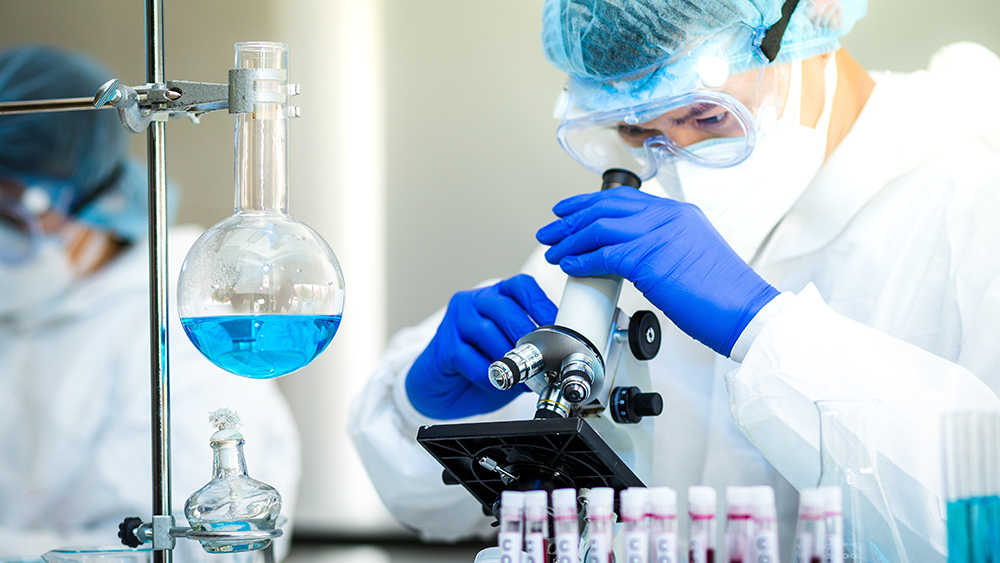
Nanobodies from llamas?
Researchers who participated in the study found that minuscule antibodies produced by llamas can potentially help treat coronavirus. These beneficial virus-fighting proteins could then be given to infected people via a nasal spray.
The research team from the Rosalind Franklin Institute (RFI) in Oxfordshire included experts from the University of Liverpool, University of Oxford and Public Health England (PHE).
During the study, researchers discovered that nanobodies, or a smaller type of antibody produced by both llamas and camels, can effectively target SARS-CoV-2, the type of viral strain that causes coronavirus.
Findings showed that giving short chains of the nanobodies to infected animals significantly reduced signs of illness. The researchers noted that the results are promising since the nanobodies can be easily mass-produced in a laboratory, making them a cheaper and easier alternative to human antibodies.
What are antibodies?
Antibodies are proteins made by your immune system if you have an infection. The proteins are present on the surface of B cells, which are important cells in the immune system. Other immune cells called T cells help clear an infection
Antibodies are essential to fighting certain types of infections. The proteins work with other parts of your immune system to get rid of pathogens, which are the bacteria or viruses that cause disease, like SARS-CoV-2.
But the process isn't an easy or immediate one. If your immune system has never dealt with a particular virus before, it won't immediately have antibodies to the virus.
Antibodies attach very precisely to a specific spot on a specific virus. This is why your immune system needs some time to figure out which specific antibody is effective at neutralizing or counteracting a virus.
This is also one of the reasons why it can take you longer to recover when you're infected with a new virus. Depending on the specific type of antibody, it can take your body at least several weeks or more to produce the right antibodies in large enough amounts.
Nanobodies and human antibodies
Amid the pandemic, patients with severe coronavirus cases were given antibodies harvested from survivors to help them fight off the virus. However, human antibodies need to be administered by a medical injection in a hospital.
Professor Miles Carroll, deputy director of the National Infection Service at PHE, explained that the study "had huge potential," particularly since the llama nanobodies were some of "the most effective SARS-CoV-2 neutralizing agents" tested at the agency.
"We believe the unique structure and strength of the nanobodies contribute to their significant potential for both the prevention and treatment of Covid and look forward to working collaboratively to progress this work into clinical studies," added Carroll.
Professor Ray Owens, head of protein production at the RFI and the study's lead author, explained that nanobodies are a better alternative to human antibodies because of several factors.
They're cheaper to produce and can be delivered directly to the airways using a nebulizer or nasal spray. These methods mean nanobodies can be self-administered at home instead of having to go to the hospital to get an injection.
And when administered using nasal sprays, the treatment is delivered directly to the site of infection: The respiratory tract.
Fifi the llama's antibodies
Scientists used a llama called Fifi to generate the nanobodies used in the study.
For the study, Fifi was injected with a portion of the spike protein found on the outside of the coronavirus. And while the injections didn't make the llama sick, they triggered her immune system to fight off the virus protein by generating nanobodies against it.
The researchers then took a small blood sample from Fifi and the team successfully purified four nanobodies that could bind to the SARS-CoV-2.
Then, the research team combined the proteins into "chains" to boost their ability to bind to the virus. Next, the nanobodies were produced in the laboratory.
Three of the nanobody chains neutralized both the original variants of SARS-CoV-2 and the Alpha variant. Meanwhile, a fourth nanobody chain successfully neutralized the Beta variant.
Animals treated with the llama antibodies were "less likely to infect others"
The scientists also administered one of the nanobody chains to hamsters infected with coronavirus. Upon observation, they found that the animals were better able to fight off the virus.
Hamsters treated lost "far less" weight after seven days compared to the untreated test subjects.
Additionally, the hamsters that received the nanobody treatment had a lower viral load in their lungs and airways after seven days compared to the untreated hamsters. This suggests that the treated subjects were less likely to infect others.
The scientists hope that their findings can be used to develop a new, affordable type of treatment against coronavirus to curb the pandemic. (Related: American husband tells Clay Clark how budesonide treatment saved his wife from COVID-19 – Brighteon.TV.)
Professor James Naismith, director of the RFI, concluded that their study may be key to producing a more effective treatment for coronavirus that's also accessible to people across the globe, especially since "there remains a risk of new variants capable of bypassing vaccine immunity emerging."
The researchers are now working on obtaining funding so they can proceed to clinical studies in humans.
Other studies have also looked into the potential of llama nanobodies
The RFI study isn't the first to examine antibodies produced by llamas as a potential way to cure coronavirus.
In November 2020, U.S. researchers from the University of Pittsburgh injected a llama called Wally with coronavirus spike proteins to produce nanobodies.
Earlier last year, researchers from the University of Texas discovered that llama nanobodies were effective against severe acute respiratory syndrome (SARS), a virus closely related to coronavirus.
Sources include:
Please contact us for more information.





















